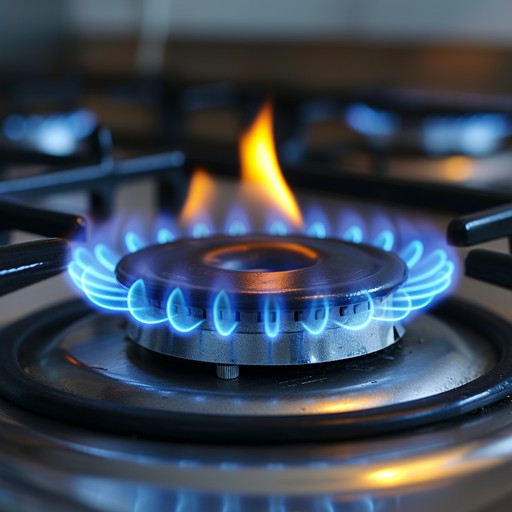The surge in gas imports is significantly widening the UK’s trade deficit, posing serious challenges to the nation’s economic stability. As dependency on foreign energy grows, the balance of trade is increasingly under pressure, raising concerns about long-term financial sustainability.
Declining North Sea Gas Production
The ongoing rapid decline in North Sea gas production, as projected by the fossil fuel industry, is compounding the issue. Coupled with slow-paced policies aimed at reducing gas demand, the UK’s hopes for energy independence are increasingly threatened. Projections indicate that gas import dependence could grow by a staggering 60% by 2035 if current trends continue.
This rising dependency on gas imports will have major financial implications, particularly impacting the UK’s balance of trade and household finances. With wholesale gas prices expected to remain elevated—potentially three times their pre-crisis levels for several years—the UK’s annual wholesale gas bill could exceed £35 billion most of the way to 2035, representing at least three times the pre-crisis expenditure.
Financial Implications of Gas Import Dependency
A significant portion of these costs will be directed to overseas gas producers, with projections nearing £30 billion annually by 2030. This will account for approximately 85% of the UK’s gas payments by 2035, creating a financial drain that is over four times higher than pre-crisis levels.
For the average UK household relying on a gas boiler, this could mean paying around £500 a year to foreign gas suppliers by 2035—five times the amount spent before the gas crisis. Specifically, this expenditure could break down to about £200 to Norway and £300 to Qatar and other liquefied natural gas (LNG) exporters.
In stark contrast, households adopting ‘net zero’ solutions—such as electric heat pumps, superior insulation, and solar PV panels—are expected to spend less than £100 on imported gas by 2035.
The Cost of Inaction vs. Proactive Policies
Between 2024 and 2035, a typical household consuming standard amounts of gas would contribute approximately £5,700 to overseas gas producers. In comparison, a net zero home would pay just a quarter of that cost, around £1,400.
However, adopting a more ambitious policy framework aimed at deploying insulation, heat pumps, and renewable energy sources could drastically reduce gas demand. If implemented effectively, such measures could cut UK gas imports by 55% by 2035, thereby enhancing energy security.
By reducing gas demand, the UK could see a significant decrease in spending on wholesale gas, leading to lower payments to foreign producers. Under this scenario, overall UK gas expenditure could return to pre-crisis levels by 2035—albeit for a reduced volume of gas at a higher price.
In this optimistic scenario, most homes would transition to ‘net zero homes’ equipped with heat pumps, enhanced insulation, and solar panels. Each of these homes would only require about £10 of gas by 2035, with a mere £1 allocated to imports from Qatar.
The Risk of Inaction
Despite the clear advantages of transitioning to lower gas demand, the UK risks missing the opportunity to shift toward more sustainable practices. Currently, the Government is not keeping pace with the global race to attract net zero investments. This lack of proactive measures could result in the UK remaining reliant on high levels of gas imports, especially as North Sea gas output inevitably declines.
In conclusion, the UK faces a critical juncture in its energy policy. By prioritizing the reduction of gas demand through innovative solutions and investments, the nation can improve its economic stability, reduce dependency on foreign energy, and ultimately foster a more sustainable future. The time for action is now—seizing this opportunity will safeguard the UK’s economic and energy independence for generations to come.
Do follow https://www.sunsave.energy/blog/uk-gas-sources
visit our website https://utility7.com/

